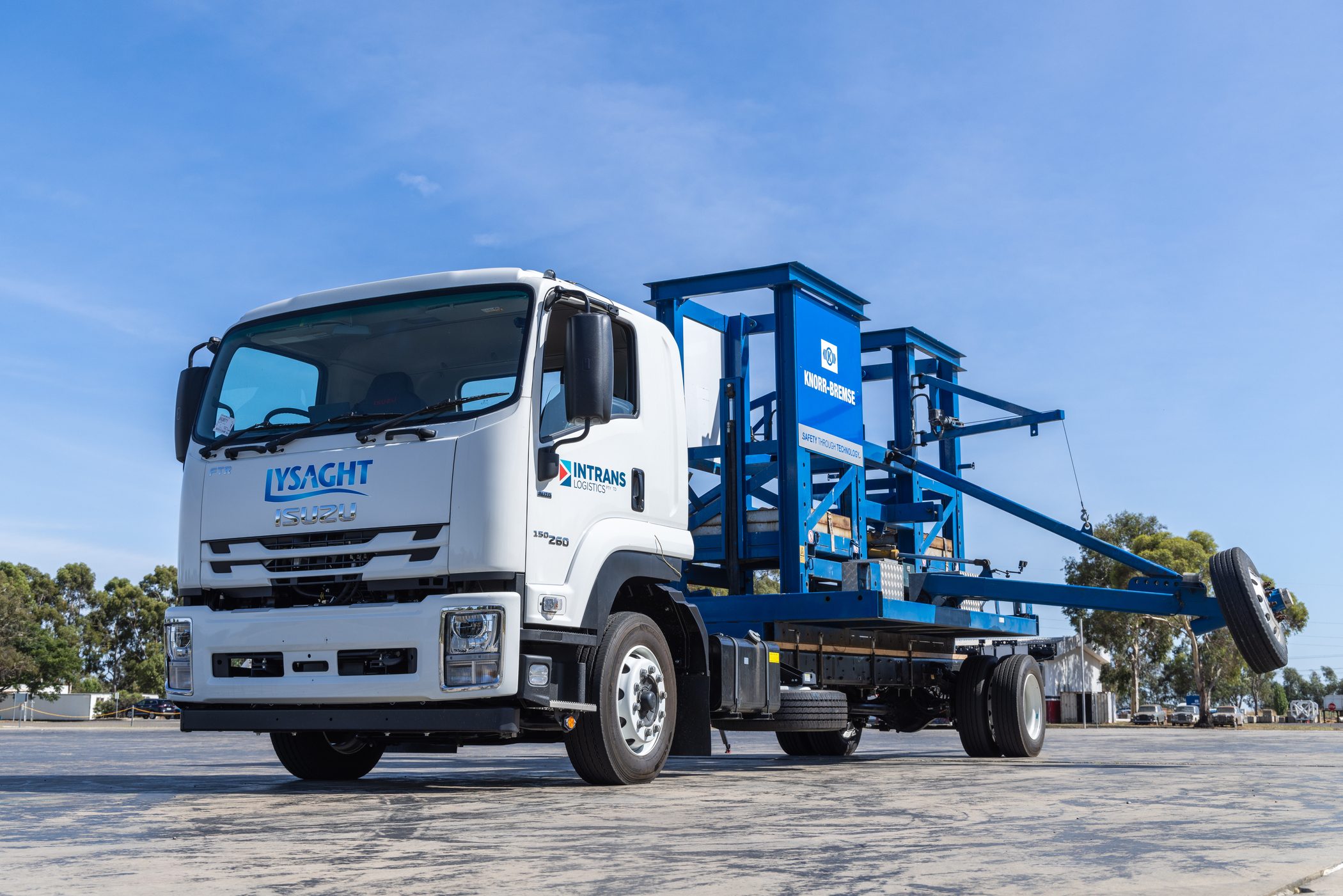HIGH-TECH HIJACKING: THE GROWING CYBER-THREAT TO TRUCKING

Trucking can be a risky business. From the bizarre behaviour of other road users, to the health challenges of working long, stationary hours – nobody said road transport was easy. But one risk you probably never thought you’d deal with was computer geeks. The word ‘hackers’ conjures images of basement-dwelling, energy-drink swilling social misfits, who steal credit card information, infiltrate government websites and let loose hordes of dinosaurs on secluded islands. But despite the stereotypes, hackers are far more complicated than Hollywood would have you believe, and are probably more closely-related to criminal organisations than lonely adolescents. If you’re in the transport industry and can’t imagine how a humble laptop could endanger your company, this blog will shed light on why cyber-criminals are specifically targeting small businesses, and how to help protect your fleet against online fraud.
Why the transport industry?
Any business that uses technology – especially to communicate or store data – is a potential target for hackers. The scams can be very profitable for cyber-criminals, and already costs the Australian economy an estimated $1 billion a year. Unsettlingly, hackers say the trucking industry has become a soft target. Transport operators that don’t expect to be under siege often face the biggest risk, and unlike government agencies or banks, your average truck fleet is unlikely to prioritise cyber security. No one's pointing the finger either, seriously – who hasn’t used ‘password’ as their password before? Hacking isn’t just a problem for big fleets, with experts saying small to medium businesses face the biggest risk, because they’re more likely to have cash reserves. Money's not the only reason people are targeting the transport industry, people hack businesses for a range of reasons. Reports of hackers targeting companies for revenge are becoming common, so the next time you’re late with a delivery, maybe check the address isn’t a basement apartment, and the addressee isn’t sipping a cocktail of energy drinks.
What can hackers do?
The consequences of hacking can be very serious. Hackers now have the technology to gain access to a truck’s on-board computer, and can potentially accelerate, cut the brakes or even destroy its engine from a laptop. While these sorts of attacks are unprecedented, there are much more common forms of cyber-crime directed at the transport industry. Identity theft is a key threat to trucking companies, with hackers impersonating established companies to steal cargo. Finding freight is made easy by ‘loadboards’ – online platforms that connect shipping brokers directly with truck drivers. Hackers forge their credentials by stealing the identities of legitimate freight companies and drivers, which allows them to apply directly for delivery jobs and steal cargo from unknowing brokers.
What can I do?
Unsurprisingly, hacking is prompting a growing market for ‘cyber-insurance’, as businesses scramble to protect their assets. But if you don’t feel like paying a premium, or just think prevention is the best cure, here are a few basic tips to help secure your fleet.
- Don’t go out on a limb: Use supported, updated software throughout your I.T. set-up. Understand the need to be careful when making any modifications to vehicle software and train your staff on the risks.
- Control access: Know who has physical access to your trucks. Researchers doubt that cyber-criminals can hack a truck without entry, so if you trust everyone who has access to your vehicles, your trucks are likely to be in safe hands.
- Track cargo: If you use loadboards to source deliveries, or sub-contract freight regularly, place a GPS tracker in your load so you can track its progress. Trackers are easily hidden and robust and could save you a lot of money.
- Double check: Help prevent identity theft by double-checking details and identification. Call companies to confirm deliveries and never assume just because someone looks legit, they are.
- Plan ahead: What would you do if hackers stole your company’s data, hacked into your bank accounts or posed as your drivers to steal someone’s freight? Consult with an I.T. expert to design strategies – including prevention and staff training – to deal with cyber-threats.
In our blogs we’ve extensively covered how the trucking industry’s becoming technologically advanced, but cyber-threats prove our industry’s still catching up. Freight has had to deal with the criminal element for much of its history – for decades we’ve heard the adage ‘it fell off the back of a truck’. As a result, everyone realises it’s foolish to leave your truck unlocked or a load unattended. In the very near-future, the same will be said about truck fleets that have no protection from cyber-attacks.


Playtime’s over, get $3,500* to spend on extras.
If you’re ready to get serious about tackling bigger jobs, grab yourself an NLR 45-150 AMT SWB Traypack from the Ready-to-Work range for $62,990 drive away*. And to prove we aren’t playing, buy any NLR Traypack before June 30 and you’ll get $3,500* to spend on genuine accessories or an Essentials service agreement.
Learn more



